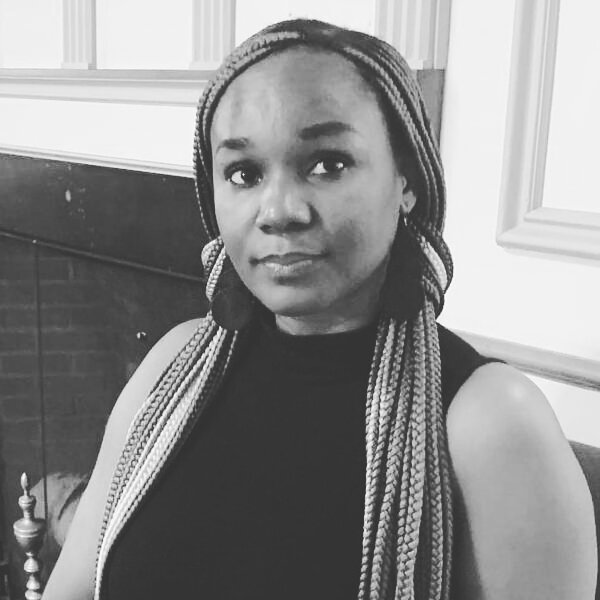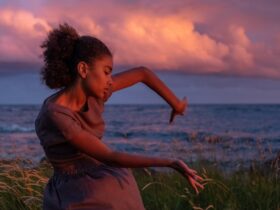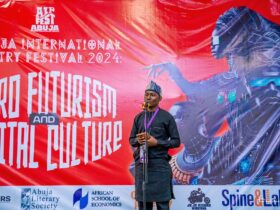Here is our interview with the Nigerian writer, Ukamaka Olisakwe, about her first poem, Slut, published by Rattle. The poem got more than 720 shares in November 2019—the month it’s published.
Konya Shamsrumi: Could you tell us about growing up in Kano, as an Igbo, the questions and demands of the society whose culture differs from yours? How did that influence your life today?
Ukamaka: The beautiful thing about growing up among people from diverse cultures is the opportunity to learn new ways of being and new languages. I grew up in the Sabon Gari area of Kano, and it was a haven of sorts, populated by people from various parts of the country. I learned some Yoruba, Hausa, Igala, Bini, and of course, I spoke Igbo at home, English in the classroom, and Pidgin on the streets.
It never occurred to me how these languages shaped me until I began writing. I realised that some of my stories come to me in Pidgin, some in Igbo, and a few were inspired by some of the words I picked from the different dialects I learned as a child. It is a beautiful thing. But it saddens me that most times, I am forced to translate these thoughts into English Language on paper so it can be accessible to readers. What happens is that I put my mind through double, sometimes triple, translation processes to produce what my diverse readers can digest. I have toyed with the idea of writing an entire story in Pidgin, but I haven’t dared that yet.
Konya Shamsrumi: Your poem, “Slut,” is a very powerful and provocative poem.Could you take us through the genesis and the making of the poem?What triggered “Slut?”
Ukamaka: Ah, that one! I always write vulnerable stories that are dark and charged with emotions, especially when it comes to topics about my marriage and experiences with childbirth and motherhood. With “Slut” I wanted to be playful on the page, to attempt what my professors call “joy writing.” I enjoy being in the company of women. And I have learned that within this community, I do not have to perform femininity or any of those social constructs we are burdened with every day. In the company of women, I can be foolish and loud and intelligent and funny. I had a conversation with some friends about our earliest sexual experiences and that conversation unlocked memories I had long suppressed. I placed those experiences side by side with my marriage, and “Slut” was born.
Konya Shamsrumi: Considering the style used in “Slut”, why did you choose to write the experiences in poetry instead of prose?
Ukamaka: That form was more fitting for the narrative I had in mind. There is this believe that certain stories are better conveyed using certain western structures. One of the questions I got when “Slut” went live was how I would describe it. And I think the person who asked this did not mean any disrespect, rather, he wondered if it could be read something hovering between a traditional metered poem and a traditional short story. I believe he felt this way because we have internalised too much of western orthodoxy that we forget that there are other ways of storytelling, and that it is totally fine to bend genres. But I must also admit that this question would not have risen had I written “Slut” entirely in Igbo. That’s the implication of writing in English language, of even using the very western term—“Slut.”
Konya Shamsrumi: I believe you’d have observed, while growing up in Kano, (through preparations for marriage among the Hausa people) that a woman’s role in intimacy had always been reduced to procreation. Can I say this is a call for women to start claiming their rights to enjoyment of sex (as the man has always been doing) or is it only stating that “sex had always been a ceremony for the man’s orgasm”?
Ukamaka: I did not have the privilege of personally observing the Hausa marriage rites in Kano, but I did watch a lot of Kannywood movies and the ceremonies were like festivals. I loved the entire drama of clothing the woman like she directly descended from the sky. I loved how the women have all the time to themselves to play dress up. The jewelries. The henna. All those fineries. It is also very similar to our preparations in the south.
However, the line “sex has always been a ceremony for the man’s orgasm,” directly references my own experiences in my Igbo Christian community, where I was taught that my body belonged to my husband and for his pleasure, only. As if I should have no say in the matters concerning my own body and should not partake in the business of pleasure-giving and receiving. It took conversations with women from different communities to change that notion.
Konya Shamsrumi: Your words, “my body belonged to my husband” reminds me of lines in Hauwa Shafii Nuhu’s poem, “a brief history” in Jalada. It reads, “your body is yours until / you place a lover’s name on your tongue.” How does it feel to know that your body is just for the pleasure of another’s? Can you explore this feeling metaphorically?
Ukamaka: I think the question should be “how does it feel to know that your body was just for the pleasure of another’s?” because “Slut” is a song of rebellion; it is the story of how I reclaimed my sexual agency.
Konya Shamsrumi: Having in mind the knowledge of the upsurge in consciousness of the body among writers, especially poets, in Africa today, are there needs for the body to be explored when we are faced by dictators hiding behind the curtains of democracy?

Ukamaka: Our societies are populated by people whose bodies have been oppressed by laws that refuse to acknowledge the woman as a full human being; homophobic laws; and even laws that allow loopholes for sexual impropriety. So, some writers assert their humanity by speaking about their bodies. It is a form of activism, of self-care and self-love; it is therapy, an effort against insanity.
I wince when people question the political relevance of a work, or police how a writer should tell their story. A writer’s decision to centre the dictator in their story is political. And it is also political when another writer chooses not to name or contextualise the tyrant within their narratives. We don’t have the luxury of separating politics from the body, and so it is welcome when a writer tackles these issues in whatever fashion they deem fit. I think it is ridiculous to accuse writers of political indifference because they refused to knight the dictator in their stories.
Konya Shamsrumi: Let us go back to the beginning. Who are the authors that inspired you to become a writer?
Ukamaka: The list is so vast: from Buchi Emecheta to Flora Nwapa, Chinua Achebe, Chimamanda Ngozi Adichie, Lola Shoneyin, J.M. Coetzee, Toni Morrison, Jamaica Kincaid, Roxane Gay, Edward P. Jones, and so many others.
Recently, these writers have opened my eyes to what I can do with non-traditional forms of storytelling: Carmen Maria Machado, Maggie Nelson, Justin Torres, Bonnie Jo Campbell, Jennifer Egan, Lorrie Moore, and many others.
Konya Shamsrumi: There have been comments about “books no longer sell.” Where do you think the problem lies and could you suggest ways of solving it?
Ukamaka: I think this question was answered in 2017 when the Publishing Association in the United Kingdom revealed that the sales of ebooks dropped by 17%, while the sales of physical books rose by 8%. A similar report was also published in the United States. The truth is that people will always yearn for the smell and feel of the physical book. I want to touch my book. I want to hold it close to my chest if I love the prose and the content, and I want to toss it in a pile if I don’t.
So, there really is no solution because I do not see the death of the books in the foreseeable future, as folks keep predicting. However, I am a great fan of audio books, especially when a text is read by the author themselves or someone who comes from the author’s community and understands the culture, the accent, and when to bring drama to the dialogue.
Konya Shamsrumi: I want to be buried with a book when I die. Which African book would you recommend?
Ukamaka: Buchi Emecheta’s “The Joys of Motherhood.”
Konya Shamsrumi: Thank you for granting this interview. It’s a honor to have you.
Ukamaka: Thank you, too!
Ukamaka Olisakwe is a Nigerian novelist, short story writer and screenwriter. In 2014 she was chosen as one of Sub-Saharan Africa’s most promising writers under the age of 40. She was born in Kano, Nigeria, and in 2016, was a resident at the University of Iowa’s International Writing Program.
Her writing has appeared in Catapult, the New York Times and The Rumpus. She wrote the screenplay for The Calabash, a Nigerian television series that premiered in 2015 on Africa Magic Showcase.
- CALL FOR SUBMISSION: Dear Yusef: Essays, Letters, and Poems For and About One Mr. Komunyakaa - May 25, 2022
- #SubmitNow: Awaiting Revolution Poetry/Essay Anthology - May 21, 2022
- The Straight Path | Adamu Yahuza Abdullah - May 20, 2022













Leave a Reply